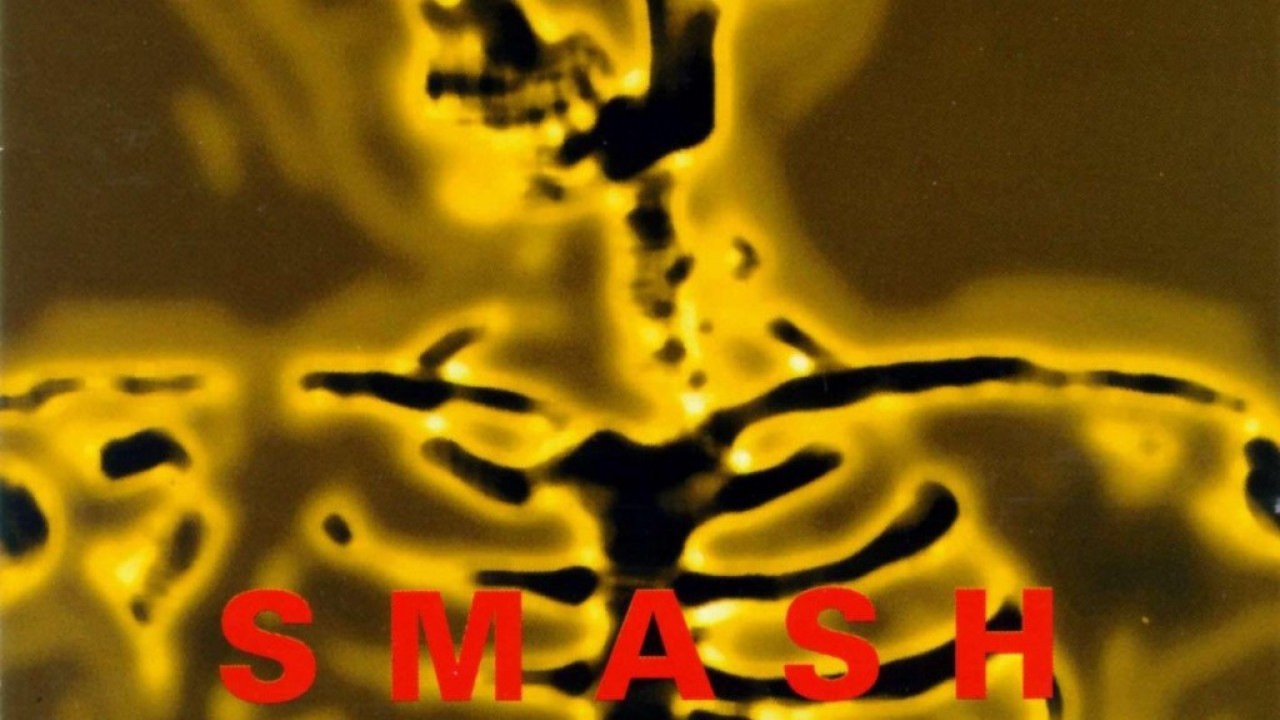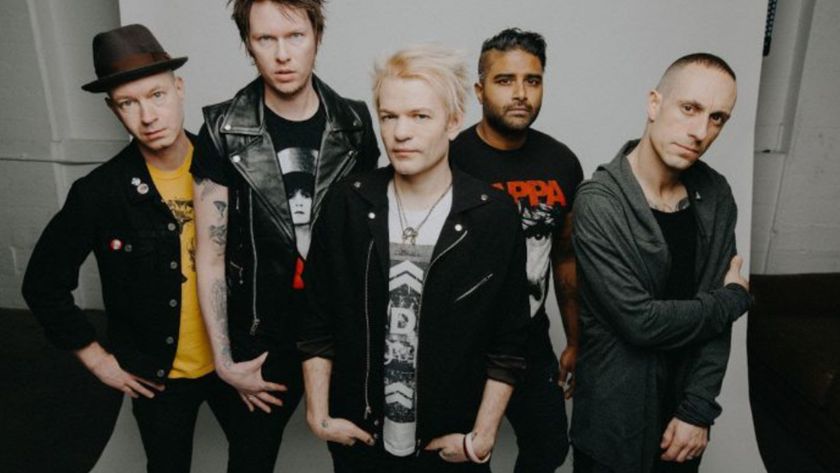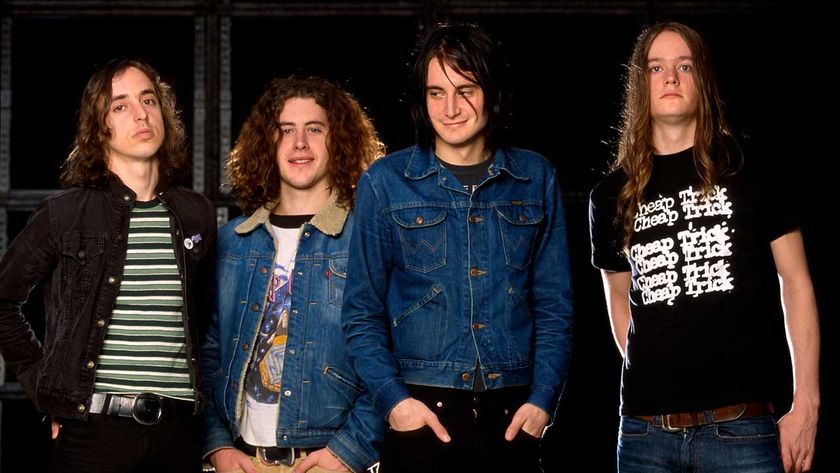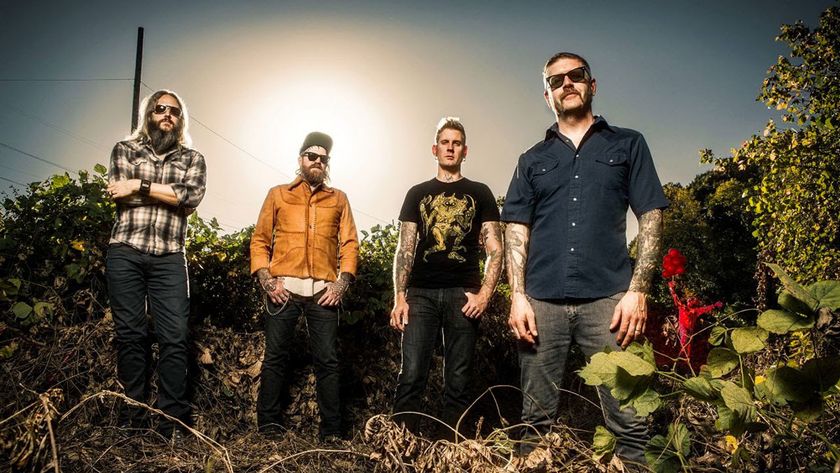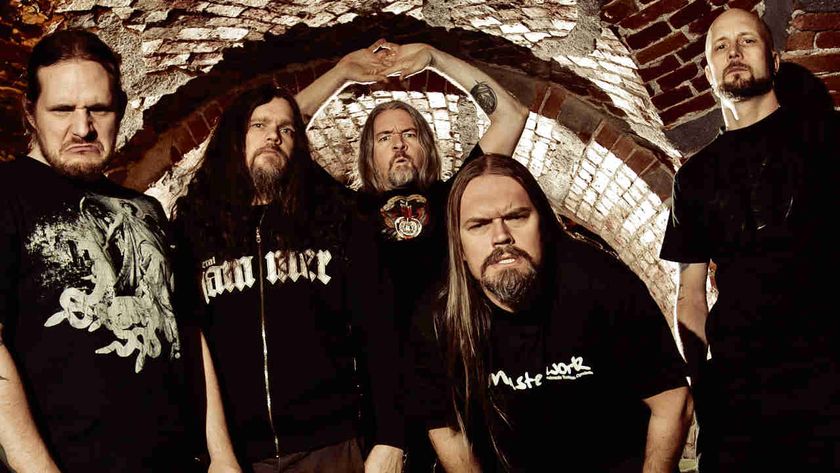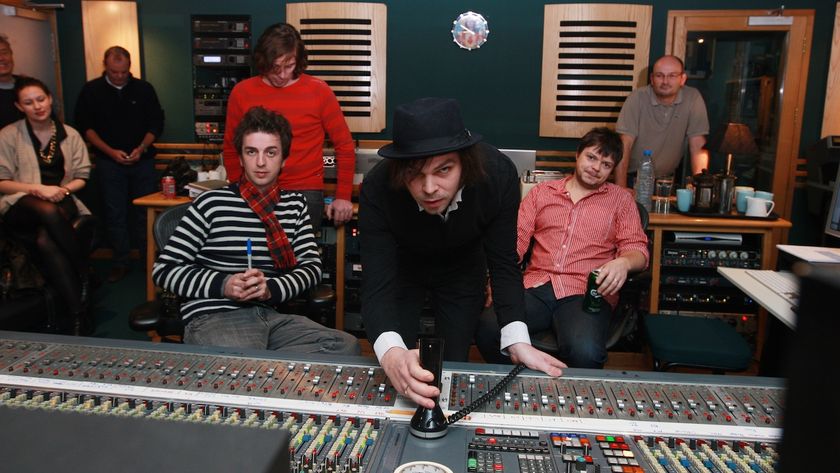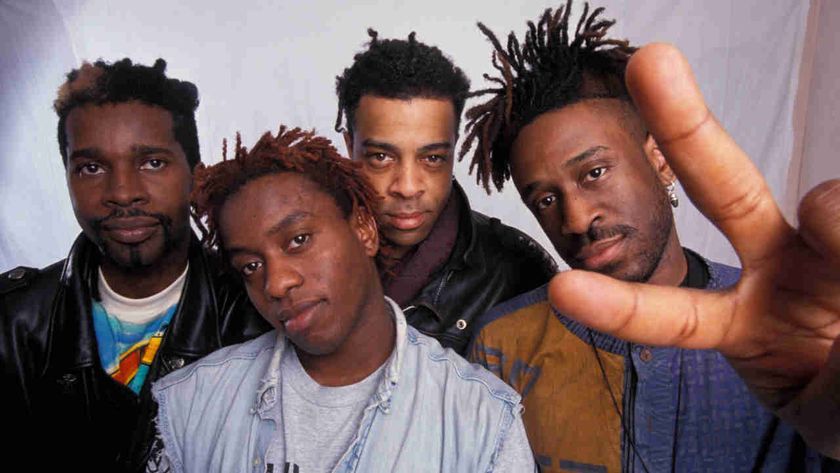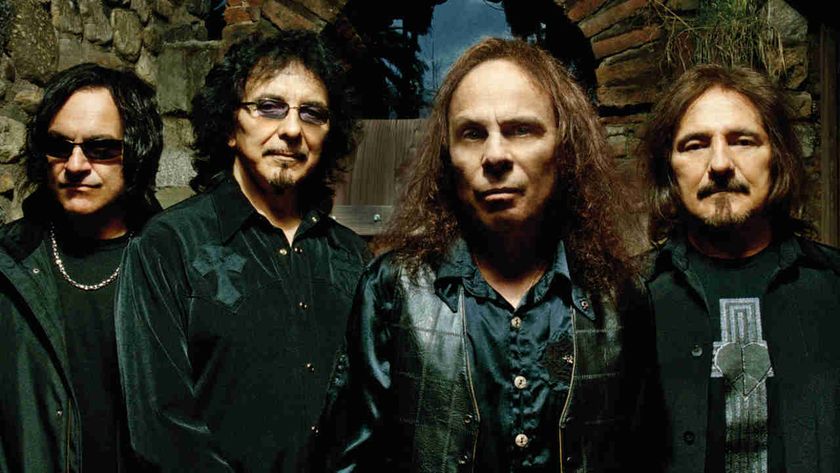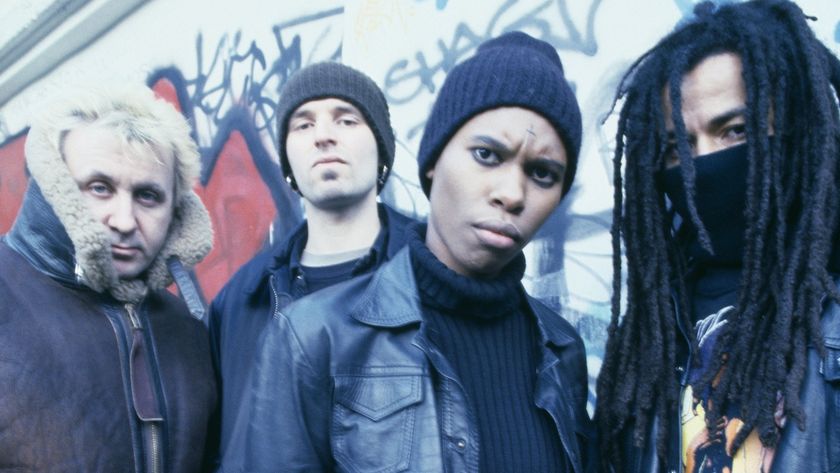Released on April 8 1994, the very same day as the lifeless body of Kurt Cobain was discovered, Smash would herald pop punk’s mainstream acceptance. Through the likes of The Offspring, Green Day and then Blink-182, it would become even bigger than grunge; the preceding underground music scene also swiftly commercialised.
The previous summer, The Offspring played support to NOFX on the latter’s ‘Soul Doubt’ tour throughout the UK and European toilet venue circuit.
“We slept on NOFX’s bus and really messed it up,” guitarist Noodles told us back in 2001.
“There only enough bunks for three of us,” reminisced vocalist Dexter Holland. “So we had to take turns sleeping on the floor in the aisle every night. But it was a great tour: 31 shows in 35 days across Europe. Those trips were tough to manage and gruelling.”
Fast forward 12 months and the band’s third full-length Smash is on the cusp of becoming the most successful independent album of all time – it will eventually sell a staggering 20 million copies worldwide. For follow-up album Ixany On The Hombre, The Offspring would leave revered SoCal punk label Epitaph in favour of Sony’s Columbia. And the rest is platinum-plated history.
But this year, The Offspring return to their roots. After playing storming Smash sets at Download and Euro fests earlier this summer, they’ve now teamed up with some fellow SoCal punks Bad Religion, Pennywise and The Vandals – for the allstar Summer Nationals enormo-tour – and are currently winging their way across the States up until mid-September in support of the Smash 20th anniversary editions.
Smash was the band’s third album release after their self-titled debut and second album Ignition, but what brought them that far? And how did that scene emerge? Join us, reader, as we take a trip into the past along the west coast’s Pacific Punk Rock Highway.
1. Descendents – Milo Goes To College (New Alliance, 1982)
The Descendents may have been the most notable earliest band of the melodic SoCal punk genre but their locale of South Bay in LA County around the Manhattan Beach/Hawthorne/Hermosa Beach district was previously best known as home to The Beach Boys. And it’s that sun-drenched feelgood adolescent surf music with its idiosyncratic harmonies which would become as integral to the SoCal punk scene as much as it was for Brian Wilson and his pals. Not to mention – in the case of the Descendents at least – songs about cars ’n’ girls (and coffee and hamburgers, natch).
Standout track: Hope
2. Dead Kennedys – Plastic Surgery Disasters (Alternative Tentacles, 1982)
“There was something about the punk bands when I was a kid that inspired me, rather than wanting to be in a band,” Dexter told us whilst on tour for Conspiracy Of One in 2001. “Bands like Ramones and Dead Kennedys. I think it was more the idea that these bands put forward: anyone can do it. It was music that really related to average kids and music that the average kid could do.” Not exactly known for their melodic pop sensibilities, on their second full-length, the band with the best name in punk rock refined the disparate hardcore of debut Fresh Fruit For Rotting Vegetables into an intelligent and insightful demolition of political corruption and the death of the American dream. Plastic Surgery Disasters was a full-frontal scathing, satirical attack on Reagan’s USA. Ignition apart, it’s hard to describe The Offspring as a political band – socio-political maybe. Because of Come Out And Play’s catchy poppiness, it’s easy to forget the song’s subject matter; a chilling prophecy of the increasing frequency of USA school shootings – five years before even the Columbine High School massacre.
Standout track: Moon Over Marin
3. Social Distortion – Mommy’s Little Monster (13th** Floor, 1983)**
If Social Distortion had come from the UK, they would have been described as psychobilly and forced to spend their career playing with the likes of The Meteors and King Kurt. So fortunate for them really that they grew up in Fullerton, Orange County where their barnets were safe from ludicrous barberism and gigs free from eggs and flour. Along with other neighbouring Orange County bands TSOL, The Vandals, Agent Orange and The Adolescents, Social Distortion’s blues ‘n’ country-filtered punk was a big influence on Dexter and Noodles – who came from the same area (just down the road mate, the other side of Disneyland, at Garden Grove). Mommy’s Little Monster was SD’s debut, produced in part by renowned LA punk knobsman Thom Wilson – who also worked on the DK’s Plastic Surgery Disasters and later produced The Offspring’s first three albums, including Smash. With a chequered, tragic history and ever-revolving line-up, Social Distortion released just seven albums in the space of 28 years, but quite appropriately, their most recent, 2011’s Hard Times And Nursery Rhymes was put out by the label whose stable of many bands they inspired: Epitaph.
Standout track: Another State Of Mind
4. Black Flag – In My Head (SST, 1985)
LA’s first generation punk rock and hardcore bands – X, Fear, Germs, Circle Jerks ( who directly or indirectly influenced The Offspring sound) are too numerous to mention here, but ignoring the input of Black Flag, even in terms of the melodic SoCal scene, would be remiss. Constantly reinventing and distancing themselves from both the hardcore scene and freeform-metal-jazz-skronk of their early and mid-career, In My Head was their most accessible rock/metal/melodic punk release in Retired At 21, Society’s Tease, the melodic harmonies of It’s All Up To You and the blistering riff-tastic metal boner jam of Drinking And Driving. (The latter with a video featuring a hirsute Hank smashing up cars with a sledgehammer in a scrapyard with his top off. We know – calm down, ladies.) Much like The Offspring with Smash, In My Head was a band on the verge of becoming huge – the closest Flag ever got to mainstream commercial success. Unfortunately it transpired to be their swansong and instead catapulted the band into dissolution.
Standout track: Drinking And Driving
5. Bad Religion – Suffer (Epitaph, 1988)
“We were hanging out with the Operation Ivy guys – who ended up becoming Rancid – and they were listening to [Suffer] a lot,” Dexter told Spin in 2010. “It stood out because it had a lot of melody to it.” Suffer’s importance as a benchmark release of California’s melodic punk rock scene cannot be overstated. In the same way that the DC punk scene had been revitalised with ‘revolution summer’ in 1985 with the emergence of original emo bands in the shape of Rites Of Spring and Embrace, Pennywise’s Fletcher Dragge has often correctly described Suffer as the album that reignited a turgid and directionless west coast scene. The demise of LA’s Black Flag and San Francisco’s Dead Kenndys, plus a proliferation of copycat violent hardcore bands had turned the stale scene, but Suffer – all at once melodic, erudite, poignant and rousing – landed like an incendiary.
Standout track: Forbidden Beat
6. Operation Ivy – Energy (Lookout!, 1989)
Kicking off the third (yes, bloody third) ska revival, following in the footsteps of The Clash, Ruts and Culture Shock, then ramping up the tempo and throwing in some rap for good measure, the pioneering ska punk of Energy sounds rudimentary by today’s standards but in hindsight, it was a blueprint for everything that Timmy ‘Lint’ Armstrong has done since in Rancid, The Transplants and his production work. Despite the commercial success of The Offspring and Bad Religion leading both bands to sign with major labels, Rancid remained avowedly independent – even after the runaway success of their post-Smash hit …And Out Come The Wolves in 1995. Instead, Tim A. set up his own Epitaph imprint, Hellcat Records, despite incessant courting from major labels and Madonna sending them nudie pics. Being buddies with Tim Armstrong and Matt Freeman during their OpIvy days probably made it inevitable that the ska punk would rub off on Dexter and co, but we can’t help thinking it’s for the best when they steer clear of it – especially judging by What Happened To You? STEP AWAY FROM THE UPSTROKE GUITAR. That track was the beginning of the end of the rotting, fetid, overstaying-its-welcome corpse of ska punk that launched a thousand bores. The cool of Rancid or panache of Mighty Mighty Bosstones remain palatable but ska punk would eventually eat itself. Perhaps Operation Ivy put it best when they said, pickituppickituppickituppickituuuuuuuuup.
Standout track: Sound System
7. Green Day – 39/Smooth (Lookout!, 1990)
Like Operation Ivy, Green Day were an alumnus of Larry Livermore’s Berkeley-based Lookout! Records in the heart of MaximumRockNRoll and 924 Gilman St punkland – where so many of the scene’s band broke their teeth. Literally, in some cases. Lookout! was the go-to pop (pop as compared to anarcho-death-kill-grind-punk-rock, not chart pop) punk label that widened the usual remit of many grassroots local labels by expanding its catchment beyond the immediate scene. As well as influential homegrown talent like Green Day, OpIvy and Crimpshrine, its roster fostered legendary bands from across the States like Avail and Screeching Weasel. Throw in some Stiff Little Fingers and embarrassingly adolescent lyrics into that Lookout! melting pot and BAM, there’s your early career Green Day musical template. Who knows what’s become of them since. Ah well.
Standout track: Going To Pasalacqua
**8. Pennywise – Pennywise (Epitaph, 1991) **
Loyal Epitaph labelmates to Bad Religion and – like the Descendents – natives of LA’s South Bay, Pennywise modified their sound upon hearing Suffer and became the lyrically postive yang to Bad Religion’s pessimistic yin lines. Stars of every single skate video in existence, Pennywise’s full-steam punk rock consolidated the SoCal scene sound and – not unlike Noodles – Fletcher Dragge’s appreciation of both metal and grunge as well as punk gave their sound guts and guitar technique lacking elsewhere in the scene. Despite the tragedy of original bassist Jason Thirsk’s suicide in 1996, they have recorded ten albums to date and were recently reunited with longtime lead singer Jim Lindberg for 2012’s All Or Nothing.
Standout Track: No Reason Why
9. NOFX – White Trash, Two Heebs & A Bean (Epitaph, 1992)
Punk In Drublic, released a mere three months after Smash, may be the… erm, career peak that coalesced NOFX’s idiotcore but WTTH&AB (to give it its full title) was NOFX at their dumbest best. A mocking lounge style/Louis Armstrong impersonation cover of Minor Threat’s Straight Edge, the searing brilliance of Soul Doubt, Stickin In My Eye, You’re Bleeding and the fucking epicness of Liza And Louise helped make up the first album to feature El Hefe, establishing NOFX’s classic line-up. Again, like Rancid, NOFX didn’t sign to a major label following the success of Punk In Drublic (sales of which earnt them their only US Gold status) but mostly because, let’s be realistic, they weren’t that good. Especially at following up Punk In Drublic’s success. It’s worth noting that if it wasn’t for NOFX, The Offspring would probably still exist and be doing perfectly fine anyway.
Standout track: Stickin’ in My Eye
10. The Offspring Ignition (Epitaph, 1992)
It’s the Offspring album that all Offspring fans who originally got into The Offspring from Smash onwards conclude is actually the band’s finest work after all. Certainly their most punk album in the most devout sense of the word, it’s The Offspring at their political, furious and urgent best. Not least in standout track, the dark menace of LAPD – written in the aftermath of the 1991 Rodney King beating: “Beat all the n*****s/Beat whoever you see/Don’t need a reason/We’re LAPD”. Not one duff track, a classic of its time.
Standout track: LAPD
